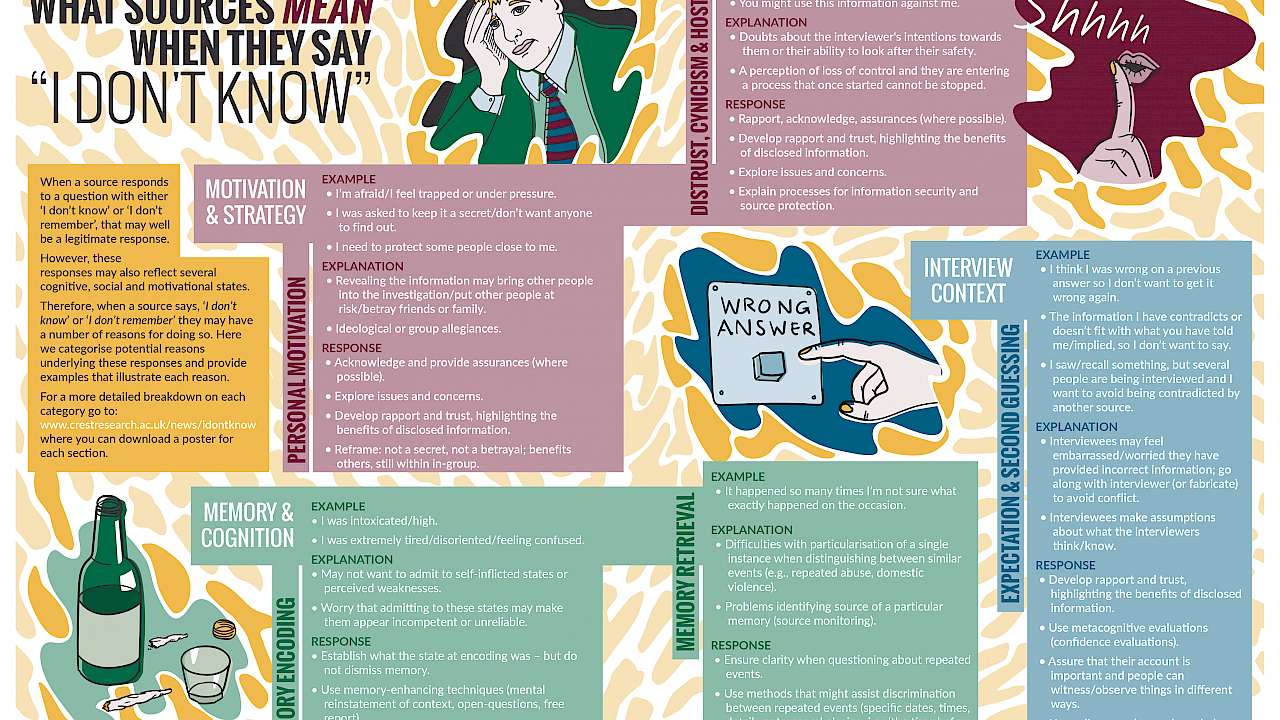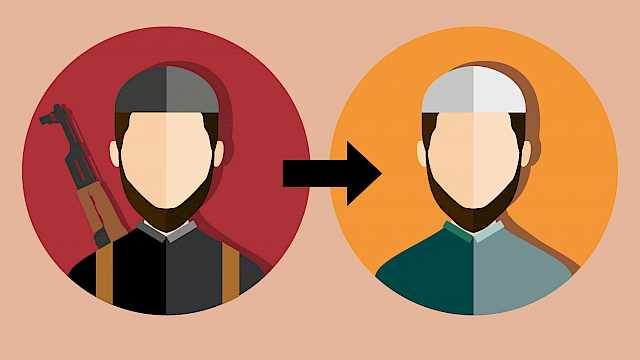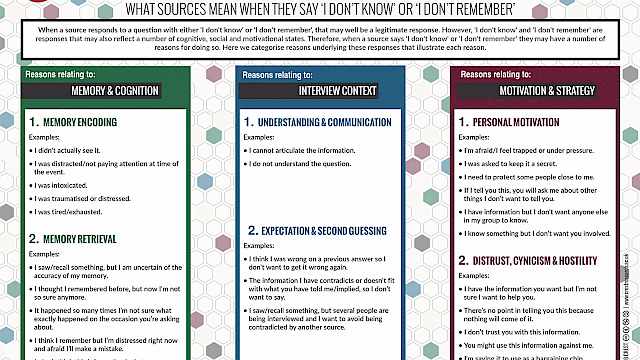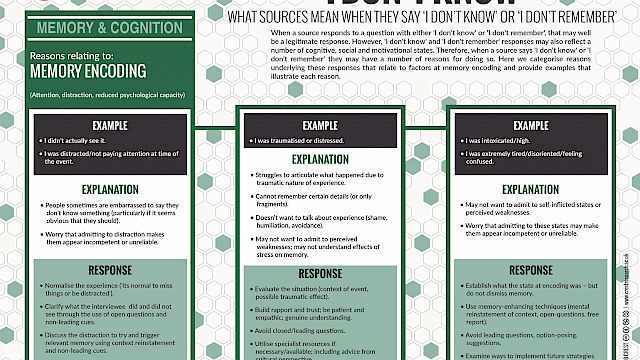When a source says, "I don’t know" or "I don’t remember" they may have a number of reasons for doing so. Lorraine Hope categorises the potential reasons and provides examples, explanations, and responses for each.
Motivation and strategy
Personal motivation
Example:
- I’m afraid/I feel trapped or under pressure
- I was asked to keep it a secret/don’t want anyone to find out
- I need to protect some people close to me
Explanation:
- Revealing the information may bring other people into the investigation/put other people at risk/betray friends or family
- Ideological or group allegiances
Response:
- Acknowledge and provide assurances (where possible)
- Explore issues and concerns
- Develop rapport and trust, highlighting the benefits of disclosed information
- Reframe: not a secret, not a betrayal; benefits others, still within in-group
Distrust, cynicism, and hostility
Example:
- I don’t trust you with this information
- You might use this information against me
Explanation:
- Doubts about the interviewer's intentions towards them or their ability to look after their safety
- A perception of loss of control and they are entering a process that once started cannot be stopped
Response:
- Rapport, acknowledge, assurances (where possible)
- Develop rapport and trust, highlighting the benefits of disclosed information
- Explore issues and concerns
- Explain processes for information security and source protection
Memory and cognition
Memory encoding
Example:
- I was intoxicated/high
- I was extremely tired/disoriented/feeling confused
Explanation:
- May not want to admit to self-inflicted states or perceived weaknesses
- Worry that admitting to these states may make them appear incompetent or unreliable
Response:
- Establish what the state at encoding was – but do not dismiss memory
- Use memory-enhancing techniques (mental reinstatement of context, open-questions, free report)
- Avoid leading questions, option-posing, suggestions
Memory retrieval
Example:
- It happened so many times I’m not sure what exactly happened on the occasion
Explanation:
- Difficulties with particularisation of a single instance when distinguishing between similar events (e.g. repeated abuse, domestic violence)
- Problems identifying the source of a particular memory (source monitoring)
Response:
- Ensure clarity when questioning about repeated events
- Use methods that might assist discrimination between repeated events (specific dates, times, details or temporal placing, i.e. ‘the time before last’)
- Seek particularisation (if relevant)
Interview context
Expectation and second-guessing
Example:
- I think I was wrong on a previous answer so I don’t want to get it wrong again
- The information I have contradicts or doesn’t fit with what you have told me/implied, so I don’t want to say
- I saw/recall something, but several people are being interviewed and I want to avoid being contradicted by another source
Explanation:
- Interviewees may feel embarrassed/worried they have provided incorrect information; go along with interviewer (or fabricate) to avoid conflict
- Interviewees make assumptions about what the interviewers think/know
Response:
- Develop rapport and trust, highlighting the benefits of disclosed information
- Use metacognitive evaluations (confidence evaluations)
- Assure that their account is important and people can witness/observe things in different ways
- Normalise error (e.g. acknowledge that task is difficult and errors may occur)
Copyright Information
As part of CREST’s commitment to open access research, this text is available under a Creative Commons BY-NC-SA 4.0 licence. Please refer to our Copyright page for full details.
IMAGE CREDITS: Copyright ©2024 R. Stevens / CREST (CC BY-SA 4.0)








